Ditapis dengan
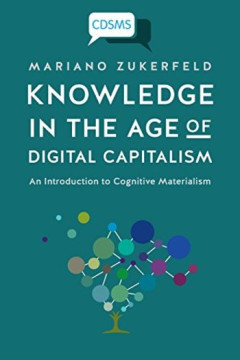
Knowledge in the age of digital capitalism :an introduction to cognitive mate…
Knowledge in the Age of Digital Capitalism proposes a new critical theory concerning the functioning of capitalism and how we consider knowledge and information. This ambitious book systematically and lucidly introduces contemporary phenomena into the framework of cognitive materialism to address some of the great themes of the social sciences: knowledge, exploitation and social class in an acc…
- Edisi
- -
- ISBN/ISSN
- 9781911534273
- Deskripsi Fisik
- ix, 261p. : ill.
- Judul Seri
- -
- No. Panggil
- 303.4833 ZUK k

Linguistic variation, identity construction and cognition
Speakers use a variety of different linguistic resources in the construction of their identities, and they are able to do so because their mental representations of linguistic and social information are linked. While the exact nature of these representations remains unclear, there is growing evidence that they encode a great deal more phonetic detail than traditionally assumed and that the phon…
- Edisi
- -
- ISBN/ISSN
- 9783946234258
- Deskripsi Fisik
- 244 p.; 23 cm.
- Judul Seri
- -
- No. Panggil
- 414 KAT l
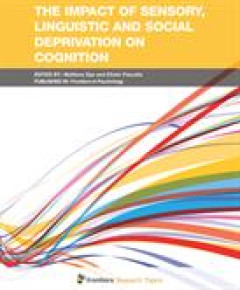
The Impact of sensory; linguistic and social deprivation on cognition
Early experience plays a crucial role in determining the trajectory of cognitive development. For example, early sensory deprivation is known to induce neural reorganization by way of adaptation to the altered sensory experience. Neville and Bavelier’s “compensatory theory’’ hypothesizes that loss of one sense may bring about a sensory enhancement in the remaining modalities. Sensory de…
- Edisi
- -
- ISBN/ISSN
- 9782889453542
- Deskripsi Fisik
- 183 p.; 22 cm.
- Judul Seri
- -
- No. Panggil
- 372.6 IMP i
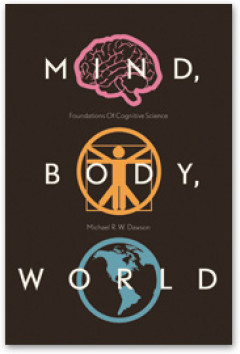
Mind, body, world :foundations of cognitive science
Cognitive science arose in the 1950s when it became apparent that a number of disciplines, including psychology, computer science, linguistics, and philosophy, were fragmenting. Perhaps owing to the fieldÕs immediate origins in cybernetics, as well as to the foundational assumption that cognition is information processing, cognitive science initially seemed more unified than psychology. Howeve…
- Edisi
- -
- ISBN/ISSN
- 9781927356180
- Deskripsi Fisik
- XV, 490 p.
- Judul Seri
- -
- No. Panggil
- 153 DAW m
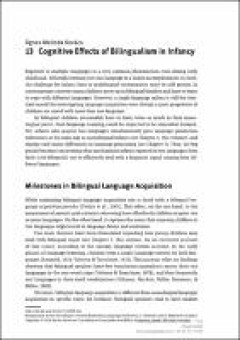
Chapter 13 Cognitive effects of bilingualism in infancy
Exposure to multiple languages is a very common phenomenon even during early childhood. Although learning just one language is a major accomplishment in itself, the challenge for infants born in multilingual environments must be still greater. In contemporary societies many children grow up in bilingual families and have to learn to cope with different languages. However, a single language mili…
- Edisi
- -
- ISBN/ISSN
- 9783110610468
- Deskripsi Fisik
- -
- Judul Seri
- -
- No. Panggil
- 306.446 KOV c

Entrepreneurial cognition :exploring the mindset of entrepreneurs
This open access book investigates the inter-relationship between the mind and a potential opportunity to explore the psychology of entrepreneurship. Building on recent research, this book offers a broad scope investigation of the different aspects of what goes on in the mind of the (potential) entrepreneur as he or she considers the pursuit of a potential opportunity, the creation of a new or…
- Edisi
- -
- ISBN/ISSN
- 9783319717821
- Deskripsi Fisik
- xiii, 281p. : ill.
- Judul Seri
- -
- No. Panggil
- 658.421 SHE e
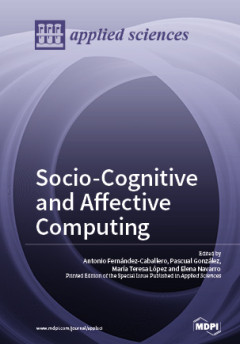
Socio-cognitive and affective computing
Social cognition focuses on how people process, store, and apply information about other people and social situations. It focuses on the role that cognitive processes play in social interactions. On the other hand, the term cognitive computing is generally used to refer to new hardware and/or software that mimics the functioning of the human brain and helps to improve human decision-making. In …
- Edisi
- -
- ISBN/ISSN
- 9783038971986
- Deskripsi Fisik
- 254 p.; 23 cm.
- Judul Seri
- -
- No. Panggil
- 384.648 SOC s

Context in communication:a cognitive view
Context is what contributes to interpret a communicative act beyond the spoken words. It provides information essential to clarify the intentions of a speaker, and thus to identify the actual meaning of an utterance. A large amount of research in Pragmatics has shown how wide-ranging and multifaceted this concept can be. Context spans from the preceding words in a conversation to the general kn…
- Edisi
- -
- ISBN/ISSN
- 9782889451425
- Deskripsi Fisik
- 242 p.; 22 cm.
- Judul Seri
- -
- No. Panggil
- 302 AIR c

Computational cognitive modeling and linguistic theory
This open access book introduces a general framework that allows natural language researchers to enhance existing competence theories with fully specified performance and processing components. Gradually developing increasingly complex and cognitively realistic competence-performance models, it provides running code for these models and shows how to fit them to real-time experimental data. This…
- Edisi
- -
- ISBN/ISSN
- 9783030318468
- Deskripsi Fisik
- 294 p.; 22 cm.
- Judul Seri
- -
- No. Panggil
- 401.9 BRA c
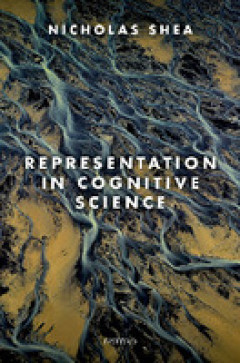
Representation in cognitive science
"Our thoughts are meaningful. We think about things in the outside world; how can that be so? This is one of the deepest questions in contemporary philosophy. Ever since the 'cognitive revolution', states with meaning-mental representations-have been the key explanatory construct of the cognitive sciences. But there is still no widely accepted theory of how mental representations get their mean…
- Edisi
- -
- ISBN/ISSN
- 9780198812883
- Deskripsi Fisik
- xi, 292 pages : illustrations ; 24 cm
- Judul Seri
- -
- No. Panggil
- 153 SHE r
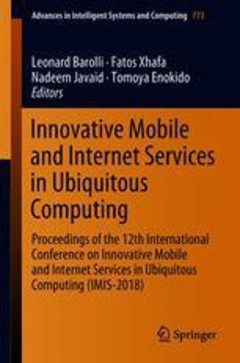
Design and implementation of cognitive ystem of children’s education based …
This paper mainly introduces the creative design of a children’s cognitive system based on RFID. The electronic tag is affixed to the real learning object, and the card reader is carried by the children. The main functions to be realized are vivid images, which give children quick and vivid knowledge of objects. Through the education of physical objects that can be touched, they can be vividl…
- Edisi
- -
- ISBN/ISSN
- 9783319935546
- Deskripsi Fisik
- -
- Judul Seri
- -
- No. Panggil
- 372.1192 HON d
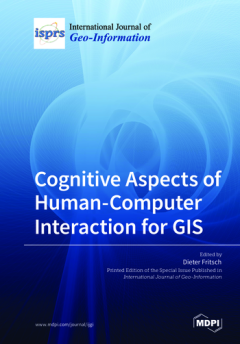
Cognitive aspects of human-computer interaction for GIS
The book is dealing with recent progress in human–computer interaction (HCI) related to geographic information science (GIS). The Editorial starts with an overview about the evolution of the Internet and first HCI concepts and stimulates recent HCI developments using 3D and 4D apps, running on all mobile devices with OS Android, iOS, Linus, and Windows. Eight research articles present the sta…
- Edisi
- -
- ISBN/ISSN
- 9783039215683
- Deskripsi Fisik
- 196 p.; 22 cm.
- Judul Seri
- -
- No. Panggil
- 001.4 COG c

Representation in cognitive science
Nicholas Shea.
- Edisi
- -
- ISBN/ISSN
- 9780198812883(hbk.)
- Deskripsi Fisik
- xi, 292 pages : illustrations ; 24 cm
- Judul Seri
- -
- No. Panggil
- -

The linguistic worldview :ethnolinguistics, cognition, and culture
the book is concerned with the linguistic worldview broadly understood, but it focuses on one particular variant of the idea, its sources, extensions, its critical assessment, and inspirations for related research. This approach is the ethnolinguistic linguistic worldview (LWV) program pursued in Lublin, Poland, and initiated and headed by Jerzy Bartminski. In its basic design, the volume emerg…
- Edisi
- -
- ISBN/ISSN
- 9788376560748
- Deskripsi Fisik
- 492 p.
- Judul Seri
- -
- No. Panggil
- 306.44 GLA l

Large-scale cognitive assessment :analyzing PIAAC data
This open access methodological book summarises existing analysing techniques using data from PIAAC, a study initiated by the OECD that assesses key cognitive and occupational skills of the adult population in more than 40 countries. The approximately 65 PIAAC datasets that has been published worldwide to date has been widely received and used by an interdisciplinary research community. Due to …
- Edisi
- -
- ISBN/ISSN
- 9783030475154
- Deskripsi Fisik
- vii, 290p. : ill.
- Judul Seri
- -
- No. Panggil
- 646.7 LAR l

Dynamic spectrum management :from cognitive radio to Blockchain and Artificia…
This open access book, authored by a world-leading researcher in this field, describes fundamentals of dynamic spectrum management, provides a systematic overview on the enabling technologies covering cognitive radio, blockchain, and artificial intelligence, and offers valuable guidance for designing advanced wireless communications systems. This book is intended for a broad range of readers, i…
- Edisi
- -
- ISBN/ISSN
- 9789811507762
- Deskripsi Fisik
- -
- Judul Seri
- -
- No. Panggil
- 621.384 LIA d

Language, cognition and gender
Gender inequality remains an issue of high relevance, and controversy, in society. Previous research shows that language contributes to gender inequality in various ways: Gender-related information is transmitted through formal and semantic features of language, such as the grammatical category of gender, through gender-related connotations of role names (e.g., manager, secretary), and through …
- Edisi
- -
- ISBN/ISSN
- 9782889198924
- Deskripsi Fisik
- 188 p.; 23 cm.
- Judul Seri
- -
- No. Panggil
- 410.15195 GAR l
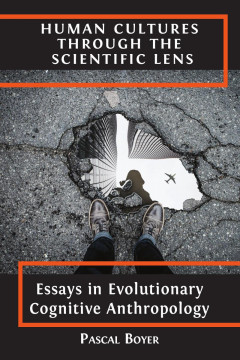
Human cultures through the scientific lens :essays in evolutionary cognitive …
1. Anthropology, Useful and Scientific: An Introduction This presents, very briefly, the project of a cultural anthropology that is informed by evolutionary biology, psychology and economics. This "consilient” version of the social sciences, to adopt EO Wilson’s terminology, is based on the idea that we cannot understand human cultures in their diversity and commonalities, without this p…
- Edisi
- -
- ISBN/ISSN
- 9781800642102
- Deskripsi Fisik
- ill. 292 p.
- Judul Seri
- -
- No. Panggil
- 155.82 PAS h
 Karya Umum
Karya Umum  Filsafat
Filsafat  Agama
Agama  Ilmu-ilmu Sosial
Ilmu-ilmu Sosial  Bahasa
Bahasa  Ilmu-ilmu Murni
Ilmu-ilmu Murni  Ilmu-ilmu Terapan
Ilmu-ilmu Terapan  Kesenian, Hiburan, dan Olahraga
Kesenian, Hiburan, dan Olahraga  Kesusastraan
Kesusastraan  Geografi dan Sejarah
Geografi dan Sejarah